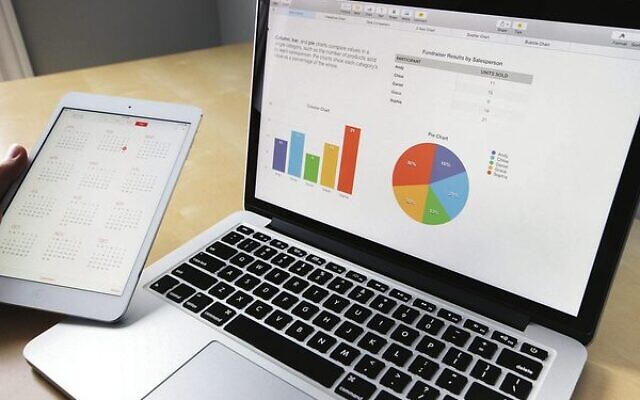Reflecting and looking to the new fiscal year
As a community, where we choose to put resources matters too. It sends signals to ourselves, our children, the community and beyond about what is important to us.
Far from Israel’s sweltering summer, July in Australia is a time to celebrate, in that we are halfway through winter. Although not a Jewish festival, July also marks the start of the new fiscal year and the end of tax season in Australia.
After focusing on last year’s tax returns, this time of year is an opportunity to regalvanise our direction and reflect on what we are wanting for the coming year. What do we want for ourselves, our families, our communities and our relationship with our Jewish homeland, Israel? It’s a time of year to think about what kind of impact we want to have on the world around us, in our own way.
Where we put our resources as individuals tells a lot about our values and what matters to us. Sometimes what matters is that a friend is completing a marathon, supporting a charity, and that friend is more important to us than their specific chosen cause.
Sometimes what matters is that people know we are people who are happy to give – the value of giving is important. Sometimes it’s the cause itself.
As a community, where we choose to put resources matters too. It sends signals to ourselves, our children, the community and beyond about what is important to us. There are many ways to signal what’s important – among them volunteering, sitting on boards and donating money. All are valuable. But at this time of year, a renewed focus on donations is relevant.
We might choose to put our donations where we identify desperation or crisis. This could be about a great little organisation that needs short-term significant investment to employ staff and flourish. Or it could be an organisation that services the needs of vulnerable people of all backgrounds in Australia, overseas or in Israel.
Sometimes where we put our donations is inspired by our values and the long-term impact we want to make in our lifetime. This will not be about a specific organisation’s work but it may well be a more macro choice in terms of values. It may be donating to Israel, to an aspect of the Jewish community here, or to a valued cause unrelated to our community.
We won’t necessarily receive an annual report from this donation for the sake of a macro value – this is about incremental impact. This is the “half-shekel” approach as in biblical times, when every citizen regardless of means donated the same nominal amount, a half-shekel. In other words, I am tying myself to this cause, I am investing myself in it. I care about sustaining it and if it doesn’t happen, I will be bothered.
Examples of this kind of support could include a school that fulfils specific aims, a new kind of shule, a sporting club, a refugee sponsorship program, sending Australian students to Israel or Israel in general. All are clearly important.
Donations to Israel have become an interesting conversation piece in recent years because in the last decade, it has appeared as if perhaps, as an economically successful country, Israel may not need our half-shekel.
However, supporting Israeli organisations and students to connect with Israel is in many ways less about them and more about us.
Although it might be said that Israel and a connection with Israel does not need our financial resources anymore, we might be naive to assume that we don’t need to donate for our own sake.
In most cases, wherever we identify on the spectrum of Jewish practice, whether Modern Orthodox, Masorti/Conservative, Reform, cultural or secular, hubs of innovation and thought leadership exist in Israel. It is a land of Jewishly experimental petri dishes outside the usual examples of the high-tech office and the science lab.
Our own Diaspora Jewish continuity relies sometimes subtly and sometimes less so on a thriving Jewish culture in Israel, just as Achad Ha’Am, a Zionist thinker of the late 19th and early 20th centuries, said it could. Similarly, Israel stands to gain significantly through a strong relationship with us, as individuals in the Diaspora, and as a country, Australia.
Recently, the President of the State of Israel, Isaac Herzog, put an interesting project in motion, to hear from Diaspora Jewish communities all over the world about what worries them. Participants raised examples of opportunities that a global project could fulfil.
No one said it is easy to connect with Israel all the time, particularly when the news is grim. But disconnecting from Israel either because it’s too hard, or from a perspective that donations to Israel or to maintain our connection to Israel are no longer necessary, is misguided.
We may not follow the Israeli news as much as our neighbour does, and Israel may rarely come up in conversation. However, that half-shekel, that nominal donation, to something Israel-related sends a message, first and foremost to ourselves, that we have a stake in Israel’s future – that Israel’s future is tied to us.
Adele Stowe-Lindner sits on the ZFA office bearers and is vice-president of Kehilat Nitzan Masorti Synagogue.


comments